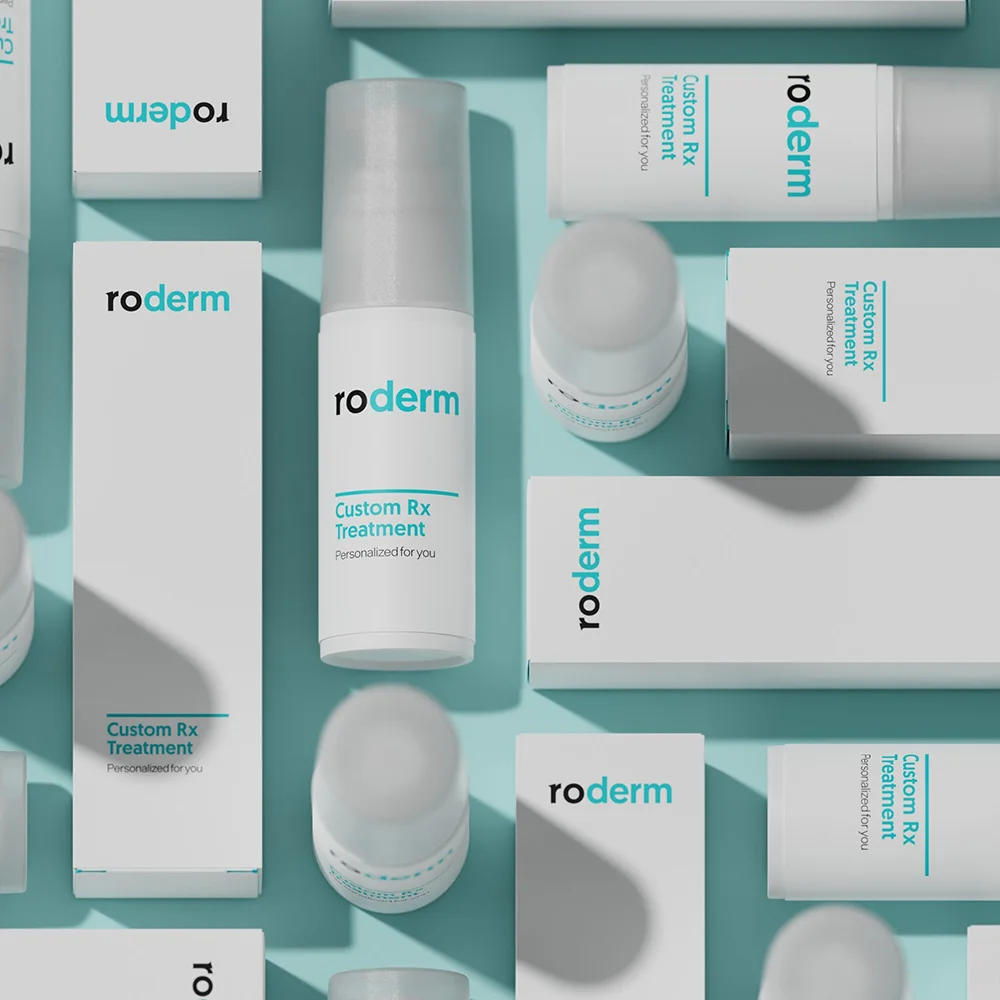Here's what we'll cover
Here's what we'll cover
Here's what we'll cover
Who among us doesn’t want to have healthy skin and better-looking hair? If one or both of those is your concern, you might be looking into a solution for hair loss, including hair loss medications or a dietary supplement containing biotin.
There are a ton of supplements containing biotin on the market, and you’re probably curious about which is the best one. But before you buy, it’s important to know what biotin is, exactly what the scientific evidence says about what it can do for your hair, skin, and nails, and how to choose a biotin supplement.
What is the best biotin supplement?
As a supplement, biotin is often found in pills, capsules, gummies, soft gels, or liquid form. It may be sold by itself or as part of a formulation with other ingredients (such as collagen, keratin, or coconut oil).
When looking for a biotin supplement––or any dietary supplement––it’s important to choose a reputable brand. Unlike prescription drugs, dietary supplements aren’t closely regulated by the U.S. Food and Drug Administration (FDA).
To ensure you’re getting high-quality ingredients at an accurately labeled dosage, look for a brand you trust. Established brands sold in stores and on sites like Amazon include Natrol, Nature’s Bounty, Solgar, and Vitacost.
It’s a good idea to check the ingredients before you buy. If you have dietary limitations, you may want to make sure your supplements don’t contain corn syrup or artificial sweeteners.
If you’re vegan, you might want to ensure the formulation doesn’t contain gelatin. You may also want to check the product information to see if your biotin supplement is gluten-free or non-GMO.
What is biotin used for?
Biotin, also known as vitamin B7 or vitamin H, is a water-soluble vitamin that’s part of the class of B vitamins. Biotin helps convert food into energy, metabolize fats and amino acids, and plays a role in the formation of skin, hair, and nails.
Biotin is naturally present in some foods––such as egg yolks, fish, seeds, and nuts––and is available as a dietary supplement (NIH, n.d.).
Because biotin deficiency can cause thinning hair and ragged nails, biotin is marketed as a supplement that can improve hair and nail health. But it is very rare for people who eat a normal diet to be deficient in biotin (Bistas, 2020).
Does biotin cause hair growth?
Biotin is heavily publicized as a supplement that’s necessary for healthy hair and nails, but most people don’t need to take it. In terms of whether biotin can help you regrow hair, grow healthier hair, or improve the quality of your skin or nails, that scientific evidence is far from conclusive.
“Although there exists an incredible amount of social media hype and market advertising touting its efficacy for the improvement of hair quantity and quality, biotin’s efficacy for hair remains largely unsubstantiated in scientific literature,” wrote researchers in a 2017 study published in the Journal of Drugs in Dermatology (Soleymani, 2017).
In a 2019 meta-analysis, a group of researchers reviewed more than 100 studies on vitamins and hair loss. They found there was “insufficient data to recommend” many vitamins and minerals touted to help with hair growth, including biotin.
“While signs of biotin deficiency include hair loss, skin rashes, and brittle nails, the efficacy of biotin in supplements for hair, skin, and nails as a means to remedy these conditions is not supported in large-scale studies,” the researchers said (Almohanna, 2019).
In fact, there have been no clinical trials conducted on biotin’s effect on baldness, and none that show it can improve hair quality or quantity (Soleymani, 2017).
Typical biotin dosage
The daily adequate intake of biotin is 30 mcg for adults over the age of 19. Biotin supplementation is generally unnecessary in healthy people. (NIH, n.d.).
The FDA hasn’t established a Recommended Daily Allowance for biotin, although it’s recommended that patients who are breastfeeding or pregnant take from 5 mcg to 35 mcg a day (Bistas, 2020).
Should you take a biotin supplement?
It’s not a proven ticket to luxurious locks, but taking a biotin supplement is unlikely to hurt you, at least not directly––more on that in a moment.
It’s considered very difficult to take so much biotin that you overdose or cause bodily harm, so the greatest risk may be to your wallet. As with other water-soluble vitamins, your body will just urinate out the excess it doesn’t use.
However, if you’re going to take a biotin supplement, you should be aware that taking large amounts of biotin can cause complications (Bistas, 2020).
Biotin side effects
Some high potency biotin formulations designed to be taken for hair, nails, and skin contain hundreds of times the amount of biotin that’s considered a daily adequate intake––5,000mcg, 10,000mcg, and beyond.
Very high levels of biotin can alter the results of blood tests, including hormone and heart workups. In 2017, the FDA issued a warning about falsely elevated or low results on a variety of blood tests related to the use of biotin.
It has led to at least one reported death: a patient who was taking high doses of biotin had a heart attack, but the biotin prevented his physicians from recognizing it. Biotin can lead to inaccurate levels of the blood chemical troponin, a biomarker used to diagnose heart attacks.
The FDA recommends that you talk with your healthcare provider before taking a supplement that contains biotin and if you’re concerned about the possibility of biotin interference in a lab test you’ve recently had done (FDA, 2019).
Be aware that if you take a multivitamin, it may contain biotin and add to the total you’re taking daily.
DISCLAIMER
If you have any medical questions or concerns, please talk to your healthcare provider. The articles on Health Guide are underpinned by peer-reviewed research and information drawn from medical societies and governmental agencies. However, they are not a substitute for professional medical advice, diagnosis, or treatment.
References
Almohanna, H. M., Ahmed, A. A., Tsatalis, J. P., & Tosti, A. (2019). The Role of Vitamins and Minerals in Hair Loss: A Review. Dermatology and Therapy , 9 (1), 51–70. Retrieved from https://link.springer.com/article/10.1007%2Fs13555-018-0278-6
Bistas, K.G., Tadi, P. Biotin. [Updated 2020 July 8]. In: StatPearls [Internet]. Treasure Island (FL): StatPearls Publishing; 2020 Jan. Retrieved from https://www.ncbi.nlm.nih.gov/books/NBK554493/
National Institutes of Health. Office of Dietary Supplements - Biotin. (n.d.). Retrieved Feb. 10, 2021 from https://ods.od.nih.gov/factsheets/biotin-healthprofessional/
Soleymani, T., Lo Sicco, K., & Shapiro, J. (2017). The Infatuation With Biotin Supplementation: Is There Truth Behind Its Rising Popularity? A Comparative Analysis of Clinical Efficacy versus Social Popularity. Journal of drugs in dermatology : JDD , 16 (5), 496–500. Retrieved from https://pubmed.ncbi.nlm.nih.gov/28628687/
U.S. Food & Drug Administration. Center for Devices and Radiological Health. (2019). Update: The FDA warns that biotin may interfere with lab tests. Retrieved Feb. 11, 2021 from https://www.fda.gov/medical-devices/safety-communications/update-fda-warns-biotin-may-interfere-lab-tests-fda-safety-communication












